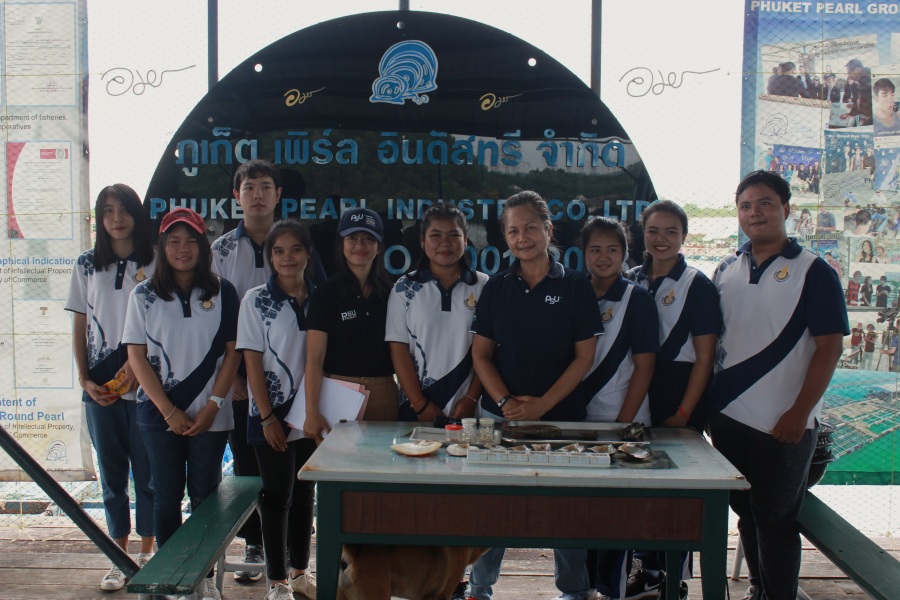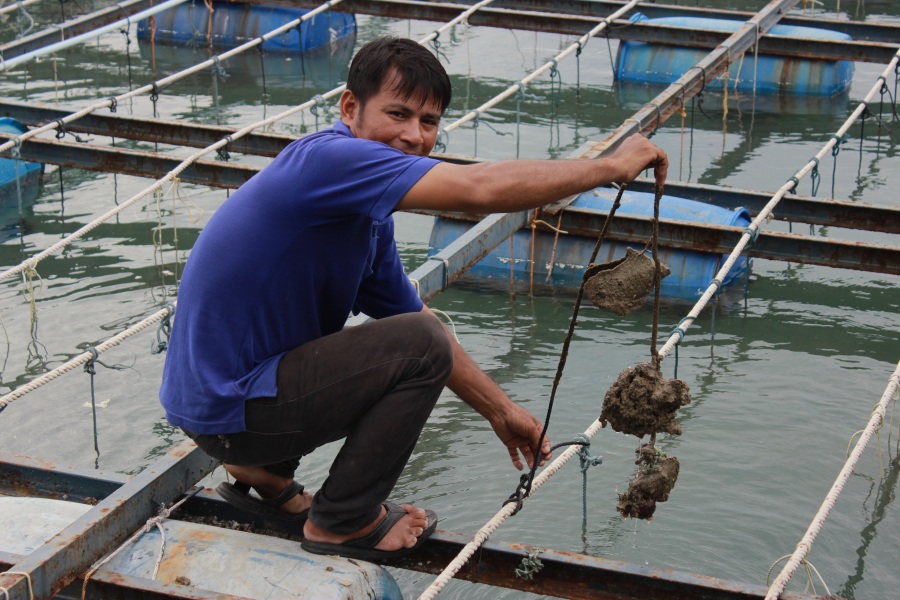The Faculty of Technology and Environment on Phuket Campus has been conducting research on pearl since 1997, according to Asst. Prof. Kannika Kanjanachatree, researcher at the faculty. She went on to explain that at its core, the research aims to fulfill the needs of the Phuket community, which made pearl research the main focus at the faculty. At first, the team studied natural pearls that are caused by external irritants getting into the oyster, triggering a defense mechanism that coats the irritant with a mucous fluid. Several layers of this coating create rainbow-colored natural pearl with greatly varied shapes. The process occurs rarely in nature, hence the price of natural pearls is high. This caused the need to create cultured pearls by artificial means.

Several years of successful pearl research are showing promising results. Harvest time has been shortened from 18 months to only 7-9 months, while the shape and thickness of the pearls have also been stabilized. These advances in cultivation help replace the natural pearl oysters that have been decreasing in number. The developments also enable the determination of ideal pearl color, the location of the pearl nucleus, the type of food and the water level most suitable for cultured pearl. These practical benefits elevated the pearl industry in Phuket province from a key player at the provincial level to a globally recognized entity, signified by the issuance of the prestigious Geographical Indication (GI) certificate, granting intellectual property rights to Phuket pearl as a unique product of the local community.

Another recent example of successful practical research at PSU Phuket Campus is the "Sustainable Fishery for Sustainable Development" project, funded by the National Research Council of Thailand (NRCT). The project is based on integrated research with collaboration between Prince of Songkla University, the community, and the private sector, for the unified goal of enabling the community to supplement their income by growing sea grape seaweed. As a direct benefit, PSU students who have worked with the community on this project will receive a scholarship through sea grape seaweed sales as well. The research location was provided by Phuket Pearl Company Ltd.
Regarding the future aspects of such research activities, Ms. Jutaporn Keson, researcher at the Faculty of Technology and Environment, revealed plans to expand research locations to Phang-Nga and Ranong. Activities will include career promotion after a thorough assessment of the potential of each community in each area, alongside the creation of value for the community's products through research. Subsequent activities will create a community identity by raising the strength of the community, including novel travel destinations and outstanding agriculture. Ultimately, after all research has been completed, the stakeholder provinces (Phuket, Phang-Nga and Ranong) will be linked via tourism, through an online data source that collects all important information for convenient access by tourists and interested agencies.





